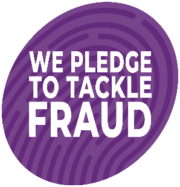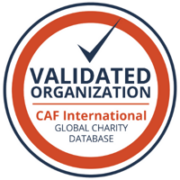Jargon Buster
A guide to some of the acronyms and terms used by health and social care professionals.
If you are new to the world of complex needs you may need help understanding the many terms and acronyms used by professionals. It can feel like learning a new language, which can be confusing and daunting.
If you ever feel confused by the terms health and social care professionals use, you should stop them and ask. They use these terms all the time and it is like second nature to them – they might not realise that you do not understand what they are talking about unless you tell them.
We have put together an A-Z of some of the terms you are likely to hear, to help you understand what professionals are talking about.
A
Additional needs – A child with a long-lasting health condition that impacts their everyday life might be described as having additional needs.
Advocate – Someone who can support you by advocating on your, or your child’s behalf to improve quality of life. Your Local Authority should be able to tell you what advocacy services are available in your area. This information should also be available on your Local Offer website.
AOB – All Other Business. This acronym usually appears on meeting agendas and notes to show any unplanned topics that were discussed.
ASC – Adult Social Care. Social care provided to people over the age of 18.
C
CAMHS – Child and Adolescent Mental Health Service. CAMHS are NHS services delivered locally that assess and treat children and young people with mental health difficulties.
CAS – Communication Aid Service – The acronym may change depending on where you are in the country. For example, CASEE stand for Communication Aid Service East of England. The service assesses the need for any communication aids and funds equipment.
CCG – Clinical Commissioning Group. CCGs assesses the health needs of the local population, decides which services to prioritise for funding, and then buys services which are provided by clinics, hospitals, and other healthcare providers.
CCN – Children’s Community Nurse. A paediatric nurse who supports children at home.
CIN – Child In Need. This term will appear on social care documents, and refers to children under the age of 18 who are disabled, or need Local Authority services to achieve a reasonable standard of health or development.
Commissioning – You may hear this term in conversations about funding. The NHS defines commissioning as: “the process of assessing needs, planning and prioritising, purchasing and monitoring health services, to get the best health outcomes”. Commissioning is essentially the buying of services and equipment to make sure people’s health needs are met.
Community health care – A term used to describe health care that does not take place in a hospital, including care at home. The team of professionals who provide care to children whilst they are at home are sometimes referred to as the community team.
CHC – Continuing Healthcare (for adults). A package of ongoing care for adults that is arranged and funded by the NHS. A Continuing Healthcare package may be given if an individual over the age of 18 has been assessed and found to have a ‘primary health need’ as set out in this National Framework. Such care is provided to meet health and social care needs that have arisen as a result of disability, accident or illness.
CMHT – Community Mental Health Team. A team of professionals including doctors, nurses, social workers, and others who provide non-urgent support to people with long-term and serious mental health conditions.
CQC – Care Quality Commission. This Government agency inspects and regulates health services to make sure they meet fundamental standards of quality and safety. You can search their website for details about hospitals, agencies and other health services your child accesses. This can be particularly helpful when choosing an agency to provide at home carers for your child.
CYP – Children and Young People, or Child or Young Person. Sometimes used by professionals instead of the terms “child” or “young person” to describe people under the age of 18.
CYPADM – Children and Young People’s Acute Deterioration Management. A form used by NHS Scotland to record discussions between parents and professionals about their wishes for their child in the event of an acute deterioration. This will include a discussion around resuscitation.
CYPCC – Children and Young People’s Continuing Care– In England and Wales, children and young people may be eligible for a Continuing Care package “if they have needs arising from disability, accident or illness that cannot be met by existing universal or specialist services alone”. More information is available on the NHS website here.
D
DFG – Disabled Facilities Grant. A grant given by Local Authorities for people who need changes to their home due to a disability. This might include funding for work to widen doors and install ramps for wheelchair users, improve access to a bathroom, and more. More information is available on the Government’s website or see our article on the Information Hub here.
Diagnosis – To identify a named medical condition from an individual’s symptoms. Not all children with complex needs will receive a complete diagnosis.
Direct Payments – Payments made to you by your Local Authority or NHS trust to provide you with the funds needed to meet your child’s care needs. Direct Payments might be part of a Personal Health Budget and are not available to everyone in the UK.
DLA – Disability Living Allowance. A type of benefit for families looking after a disabled child. DLA is currently being phased out. For more information about DLA and other benefits, see our article here.
DNR – Do Not Resuscitate. Sometimes called DNACPR (Do Not Attempt Cardiopulmonary Resuscitation) or DNAR (Do Not Attempt Resuscitation). A do not resuscitate order means that medical professionals will not attempt to resuscitate a patient using cardiopulmonary resuscitation (CPR) if they suffer a cardiac arrest or die suddenly. Patients with a DNR will still be given all other types of treatment. A DNR order has to be issued and signed by a doctor. Doctors should have an in-depth, clear and honest discussion with a parent, or the young person themselves if old enough, about CPR and the likelihood of its success.
DOA – Date of Admission. The date when a patient arrived at hospital.
DOB – Date of Birth.
DST – Decision Support Tool. Professionals will use this nationally standardised document to help them decide if a young adult is eligible for Continuing Healthcare.
E
EHCP or EHC Plan – Education, Health, and Care Plan. This is a legal document that describes a plan agreed by you, your Local Authority, and Clinical Commissioning Group. Your child’s EHCP will allow them to access education. You must ask your Local Authority to carry out an assessment if you think your child needs an EHC plan. The plan contains a description of your child’s educational, health and social care needs. It also describes what should be put in place by the Local Authority to make sure your child’s needs are met.
F
FNC – Funded Nursing Care. This is when the NHS pays for part of a patients nursing home fees. Young adults may be eligible if they live in a care or nursing home and are not eligible for Continuing Healthcare.
FOI – Freedom of Information. A Freedom of Information Request is when a member of the public asks to see recorded information held by public authorities. You can find out more about FOIs here.
H
HCSW – Health Care Support Workers. These staff are trained but are not registered nurses. They work the children and young people with exceptional health care needs.
Health Visitor – A registered nurse or midwife who will visit you at home to provide you and your family with support from a baby’s birth up until they reach five years old. They have extra training in community healthcare and will often focus on proactive care, for example monitoring a baby’s development. They can also offer you advice on anything from feeding routines for new-borns to your own mental health.
HESS – Health Education Support Service. Another name for staff working with children and young people in home or community setting.
J
JAAP meeting – Joint Application Assessment Panel meeting. A meeting between social care and health teams to manage services or other parts of a care package that are likely to need to be jointly funded or have joint input.
K
Key worker – A professional who co-ordinates the many different services that may be involved with the care of a child with complex needs at any one time. A key worker is usually someone who knows your child well over an extended period of time. They may not have an official title of “key worker”, but might carry out the same role by co-ordinating different aspects of your child’s care.
L
LA – Local Authority – This refers to your local council. They look after social care and education services.
Life-limiting condition – This phrase is often used to describe conditions for which there is no cure.
Life-threatening condition – This phrase describes conditions for which there are treatments, but there is a chance that the treatments will not work.
Local Offer – Your Local Authority must make a list of services available to children with special educational needs and disabilities in your local area. This is called the Local Offer. Local Offers are usually available on your Local Authority’s website. Click here to find details of your Local Authority.
M
Mainstream school – This refers to the majority of schools, which are not special schools. Some children with special educational needs or disabilities may attend mainstream schools.
MARS – Medication Administration Recording Sheet. A chart used to keep a record of the medicines that have been given to a patient.
MCA – Mental Capacity Act. A law passed in 2005 designed to protect and empower people who may lack the mental capacity to make their own decisions. This might include people who have a severe learning disability, a mental health illness or a brain injury. The act applies to people aged 16 or over. When you child reaches 16, they may receive a Mental Capacity Assessment. For more information about the Mental Capacity Act, visit the NHS website.
MDT – Multidisciplinary Team – a group of professionals around your child who meet regularly. This will include professionals from different clinical disciplines depending on who works with your child. For example, the MDT could include doctors, nurses, physiotherapists and others. The aim of a MDT meeting is to make decisions regarding recommended treatment for your child.
MFFD – Medically Fit for Discharge. Sometimes called Medically Ready for Discharge (MRFD). When a patient’s care can safely be continued outside of hospital, they are medically fit for discharge.
MUST – Malnutrition Universal Screening Tool. A tool used by healthcare professionals to find out if a patient is at risk of becoming malnourished and underweight.
N
NBM – Nil By Mouth. This means that someone should not have any food, drink, or medication by mouth for a period of time. Professionals may order someone to have nil by mouth for a number of reasons, like if they are about to go to surgery.
NMFFD – Not Medically Fit for Discharge. This means that a patient is not ready to safely leave hospital care.
NOK – Next of Kin. A person’s closest living relative. In the case of most children with complex needs, this will be their parent or carer.
O
OT – Occupational Therapist. These professionals help people of all ages who have any kind of permanent disability to be as independent as possible. This may include recommending aids and adaptations, training to develop skills, or designing new ways for people to perform tasks they need to.
Outpatient – A patient who comes into hospital for a short appointment and does not stay overnight.
P
Paediatrician – A doctor who is a specialist in children’s medicine.
Palliative care – Palliative care means providing the best possible quality of life and care for people with a life limiting or life-threatening condition. Palliative care may focus on making sure children can spend more time at home, pain management, emotional support, or a combination of all of these.
PALS – Patient Advice and Liaison Service. Each NHS trust will have a related PALS, which offers confidential advice, support and information on health-related matters. PALS can help you resolve concerns you might have about your child’s care, or provide you with information about the NHS complaints procedure.
PBS – Positive Behaviour Support. A method of supporting children and adults who have challenging behaviour.
PCN – Paediatric Community Nurse. A nurse who looks after children when they are at home.
PHB – Personal Health Budget. In some areas of the UK, your CCG may offer you a personal health budget. This budget is paid in direct payments to you, which you use to hire carers for your child as they are living at home. For more information on PHBs see here.
Physiotherapist – Healthcare professionals who help people to restore movement and function if you are affected by injury, illness, or disability.
PIP – Personal Independence Payment. A type of benefit for disabled people.
PMLD – Profound and Multiple Learning Disability. This phrase is used to describe children who have severe learning disabilities that effect their ability to communicate.
POC – Package of Care. A combination of different services that provide care for an individual.
PRN – Pro Re Nata, a Latin phrase that means “As required”. It is sometimes used in medical notes, particularly to describe only giving certain medicines when they are needed rather than on a regular basis.
Prognosis – Chance of recovery, or the likely course of a medical condition.
PSA – Pupil Support Assistant. PSAs work with children and young people with exceptional health care needs in schools.
Psychiatrist – A medical doctor who can diagnose, prescribe medication, and manage treatment of a range of mental health conditions.
Psychologist – Someone who has studied human behaviour, but is not a qualified medical doctor. Psychologists are not able to diagnose mental health conditions or prescribe medication. Instead, they provide support to people with mental health conditions in the form of therapies, including counselling.
R
RCN – Royal College of Nursing. The professional body and union for nurses.
RCN – Registered Children’s Nurse. A nurse who specialised in looking after children and young people.
RNN – Record of Nursing Needs. A list of the needs a patient has.
S
SALT or SLT – Speech and Language Therapist. These professionals provide support to help children and young people who experience difficulties when speaking and communicating.
SCA – Social Care Assessment. An assessment to find out if a child or young adult is eligible to receive social care.
SEN –Special Educational Needs. Sometimes this is expanded to Special Educational Needs and Disability: SEND. This term is used in Education and sometimes by healthcare professionals to describe a child whose needs affect their ability to learn or otherwise access education.
SENCO – Special Educational Needs Coordinator. Every school will have a teacher who acts as the SENCO. The SENCO is responsible for ensuring that students with special educational needs are able to get the support they need at school.
Social worker – Usually employed by your Local Authority, social workers will talk to you about the needs of your family and can support families through difficult times. A social worker will carry out a needs assessment and help your family access social care services provided by the Local Authority, including short break services and care at home.
Statutory – Means “by law”, or something that the Government or related organisation must do. For example, a Local Authority might have to provide certain services by law, and these will be described as statutory.
T
TAC meeting – Team Around the Child meeting. A meeting of the team of professionals in various roles who look after your child. As a child gets older, these are often replaced by annual review meetings within education, or EHCP meetings.
U
Undiagnosed condition – Some children with complex needs will never receive a diagnosis. This is because doctors are sometimes unable to find a cause for the symptoms. In cases like this professionals may describe children as having an undiagnosed condition.
Y
Young adult – Usually refers to someone aged 18-25.
Young person – Usually refers to someone aged 13-19. Professionals prefer to use this term rather than “child” to refer to older children and adolescents to reflect the change in age.
If you have any comments, ideas, or suggestions about this article please contact us at [email protected]
Please don’t forget to leave feedback by clicking the smiley face!
Kathy Gibson, Digital Information Officer
First uploaded August 2021
Last reviewed June 2023
Next review due June 2024




